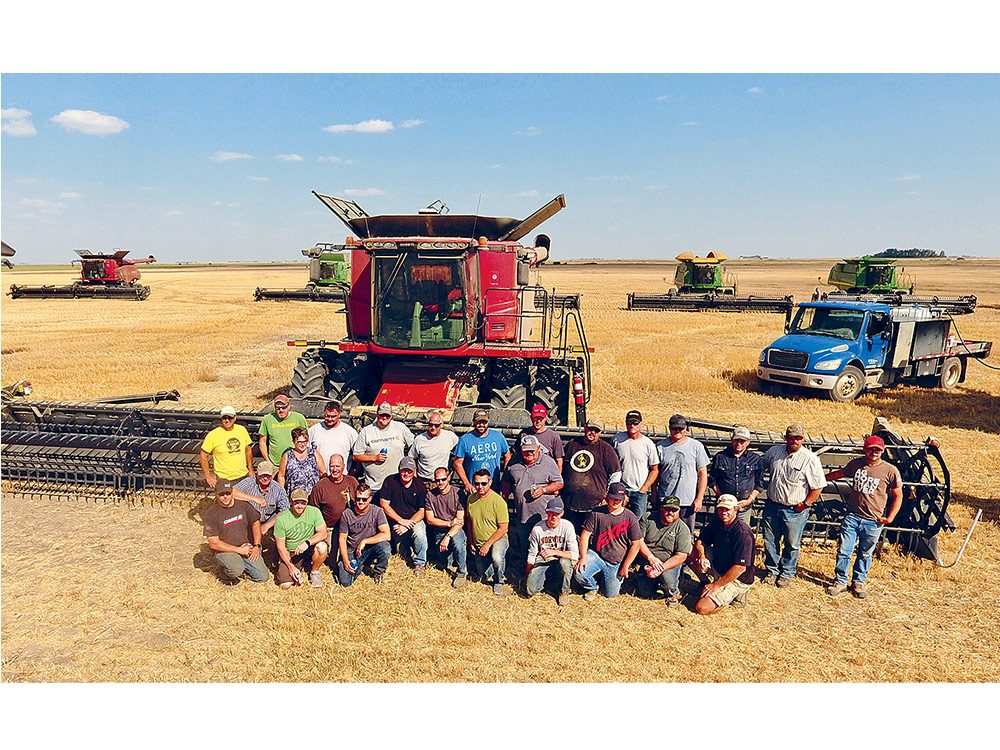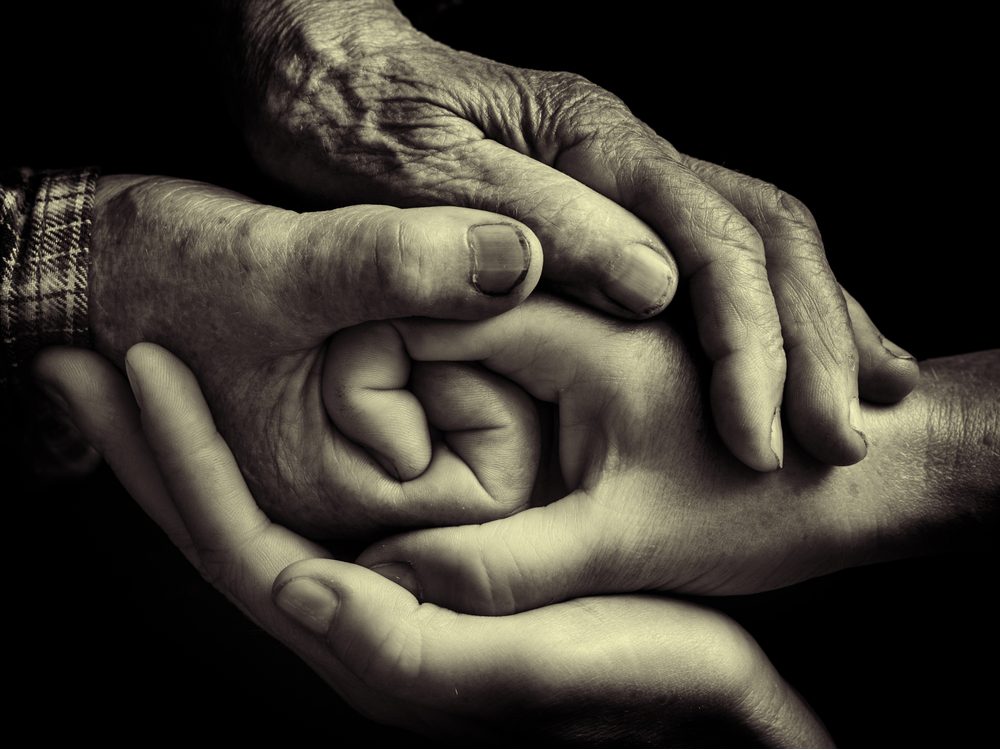
To Save a River
In this era ofenvironmental crises, it’s perhaps not surprising that Stella Bowles of Upper LaHave, N.S., found one in her own backyard. What is unique is her determination to do something about it.
The 100-kilometre LaHave River runs from Annapolis County to the Atlantic and passes through Stella’s community of Upper LaHave, on Nova Scotia’s South Shore. Back in 2015, the pretty waterway was deemed by many locals as unfit for swimming, but Stella wanted to know why. The then 11-year-old was distressed to learn what was causing the pollution: raw sewage being dumped directly into the water by hundreds of her neighbours.
“I was disgusted,” Stella says, when she found out 600 homes were using straight-pipes to pump waste from toilet to river without any filtration. She decided to look into the problem for her Grade 6 science project. With the mentorship of a retired local physician, Stella learned how to test the water in the LaHave. Her results showed fecal contamination above Health Canada guidelines, and the project would go on to earn a silver medal at a cross-Canada science fair in 2017. But locals were boating on the river without knowing they were being exposed to potentially dangerous bacteria, viruses and parasites.
With the help of her mother, Andrea Conrad, Stella began to raise awareness about the LaHave’s contamination problem. Soon she was making local headlines and lobbying politicians. In spring 2017, the municipal, provincial and federal governments agreed to eliminate all straight-pipes in Nova Scotia by 2023.
The LaHave still isn’t safe for swimming, but it should be safe for the sixth graders of Upper LaHave’s future. Stella, now 14, continues to press for more stringent rules to protect the river and this year travelled around her province to teach other kids how to test their local waterways and advocate for better stewardship.
In August, Stella’s ongoing work earned her an International Eco-Hero Award, which recognizes the efforts of environmental youth activists. “I never thought I’d be where I am today because of a science fair project,” says Stella, who is contemplating a career in environmental law.
Learn about the B.C. town that’s using dead fish to restore its rivers.

Caring in a Crisis
Abrahim Kamara can’t talk about what he saw the morning of February 10. He can only say that he was in the parking lot of his apartment building in Fredericton to load his car when a shooter opened fire, killing police officers Robb Costello and Sara Burns, and civilians Bobbie Lee Wright and her boyfriend, Donnie Robichaud.
Single dad Kamara and his 13-year-old son, Ayouba, sought refuge back in their apartment. When police arrived to tell them everything was okay, Ayouba was cowering on the floor. The duo was evacuated to safety, but the teen was too afraid to return to his new home. The pair arrived in Canada in August 2017 after escaping war-torn Liberia and spending 12 years in a refugee camp.
That day, when Kamara didn’t report for work at the York Care Centre, a retirement residence, his colleagues learned that he’d witnessed the shooting. “We needed to do the right thing to get him through this,” says Tim Boone, a manager at the home.
The team offered Kamara and Ayouba the use of one of the centre’s 103 apartment units, as well as providing some food, clothing and personal-care items. Boone also helped negotiate an insurance claim for Kamara’s Ford Taurus, which had been damaged by an armoured vehicle at the crime scene.
“They came to my rescue,” Kamara says. “It was not easy. I feel so much closer to my co-workers now. And my son and I can once again feel happy and free.”
Don’t miss this teacher’s brilliant strategy to stop future school shootings.

The Town That Farms Together
With a population of just under 700, Milestone, Sask., is the kind of place where the mayor knows your name—and your phone number.
On August 18, Mayor Jeff Brown learned that Brian Williams, one of his constituents, had died after a brief illness. The farmer had left behind a wife, three sons and about 640 acres of unharvested durum wheat.
“Mid-August is go time for crops,” says Brown, himself a farmer. “And if a family is in need, the community pulls together.” He sent out a text to 10 or so locals, asking them to pitch in to help the grieving family. Word spread from there.
The next day, 20 farmers and their combines arrived at the Williams’ farm and completed the harvest. It took about three hours for them to do what would have taken the Williams sons several days. “Years ago, when the farming machines weren’t so big, families would get together more to help out like this,” says Brown. “It’s in our DNA.”
Check out these stunning photos of hardworking Canadians.

A Roadside Angel
On August 5 just after 7:30 p.m., Mike Estepa suffered a massive heart attack. The fervent cyclist was 40 kilometres into his Sunday ride when he stopped by the side of the road to text his family saying he’d be home in about 30 minutes. Moments later, he was lying in the ditch, unconscious.
Larissa Arthur was driving back to Calgary from a hike in Field, B.C., with a friend. It was a warm and sunny day, and the two were chatting when a flash of yellow caught Arthur’s eye. She immediately pulled off the road.
As Arthur approached the figure, she feared the worst: Estepa was covered in ants and exhibited no signs of life. “There was no pulse, and he wasn’t breathing,” says Arthur. A bystander called 911 and Arthur, a registered nurse, started chest compressions. She and two other drivers took turns administering CPR for the next 15 minutes before paramedics arrived and whisked Estepa away.
Two days later, when Estepa woke up in the hospital, he was stunned to learn he had gone into cardiac arrest. How did this happen, and why was he lucky enough to have survived? He needed to speak with the woman who had saved him, whom he dubbed his “angel.”
“It was emotional,” says Arthur of her meeting with Estepa a few weeks later. Saving his life has extra significance for her: the trek she was returning from that day was one of 100 she’s planned to commemorate her father, who died in 2017 after he fell during a hike that Arthur was meant to be on.
“I couldn’t save my father’s life,” Arthur says, “but this was a chance for me to save someone.”
Meet the retired paramedic helping first responders cope with PTSD.

Fox on the Rocks
One morning in June, three crab fishers from St. Lewis, N.L., happened upon an unusual sight at sea: an Arctic fox. The unfortunate creature was stuck atop a mushroom-shaped iceberg, around seven kilometres from shore.
Mallory Harrigan, Alan Russell and his dad, Cliff Russell, set about rescuing the distressed animal, but they couldn’t get the boat close enough to reach him. Their only choice was to use the vessel to smash the iceberg and then scoop the fox out of the water with a long-handled net. The operation was a success: the shivering animal was dried off and fed a meal of Vienna sausages.
Back on land, the crew kept the creature in a dog kennel for a couple days, ensuring he was in good health, before releasing him. Since then, his silver silhouette has been spotted once or twice around nearby William’s Harbour, looking fit as, well, a fox.
Find out why Newfoundland is the kindest province.

A Campaign for Compassion
Two years ago, when she was 17 years old, Riverview resident Rebecca Schofield was told her brain tumours were inoperable and she had only months to live. Forgoing math class was one item on the bucket list she drew up, as were playing board games with family, enjoying her favourite meals (her dad’s mac and cheese among them), and a wish to encourage people to do kind things.
Becca shared her idea on Facebook: she wasn’t asking for big gestures, just small, random acts of kindness that might brighten someone else’s day. Thousands of people took up the call, posting stories with the hashtag #Beccatoldmeto about opening doors, buying coffee for strangers, giving out granola bars at the gym.
Becca Schofield died on February 17 at the age of 18, but #Beccatoldmeto continues to flourish. “Every day I’m reminded of her legacy,” her mother, Anne Schofield, says.
Follow Becca’s example with these simple acts of kindness you can do each day.

Hero on the Highway
In his 32 years as a truck driver, Frank Vieira estimates he’s covered nearly 10 million kilometres without incident. On the morning of August 24, 2017, his drive from Toronto to Hamilton shifted gears when he heard a loud crash. The 48-year-old pulled his rig over to find that an SUV had smashed into the back of a truck stopped in traffic going the opposite direction.
When he approached the SUV, he saw the driver’s neck had been pierced with a broken fragment of steering wheel. With his right hand, Vieira quickly pulled out his phone and dialled 911; with his left, he applied pressure directly to the driver’s neck to stem the bleeding. Moments later, the driver of the rear-ended truck walked over to see what had happened—and immediately fainted. With his hand still on the first man’s neck, Vieira used his foot to pull the second man’s leg safely away from oncoming traffic.
In March, Vieira received the Goodyear Highway Hero Award for his life-saving juggling act, but he remains pragmatic about his role: “I was just in the right place at the right time.”
Meet the retired trucker that pairs drivers with dogs in need of a ride.

Expanding Support for Women
When Andrew Harper, 95, was looking to bestow a charitable donation, he wanted to make his late wife, Carole, proud and to address Montreal’s escalating poverty rates. In May, he chose Chez Doris, a local day shelter that provides vital services—meals, clothing, showers and various educational, legal and health programs—for women in vulnerable situations. Harper’s unexpected gift of $1 million is not only the largest in the non-profit’s 41-year history; it’s a game changer.
“A donation of this scale is common for a university or a hospital, but not for a poverty-relief organization,” says Chez Doris executive director Marina Boulos-Winton.
She notes that there are only 70 to 110 emergency beds in Montreal available to women, who make up a quarter of the city’s homeless population. With the help of Harper’s donation, Chez Doris has purchased a new building, allowing them to expand their efforts and offer 20 emergency beds. Boulos-Winton estimates Harper’s donation will provide refuge to 300 women every year.
You can donate to Chez Doris here.

Rescued From the Tracks
Kyle Busquine isn’t usually on the subway at 3 p.m., but on June 28 he’d finished his landscaping job a little early and was headed east, toward his home in Scarborough, when the train stopped abruptly at Broadview station.
Busquine, 24, poked his head out the door to check what was causing the delay. That’s when he spotted a visually impaired man who had fallen onto the westbound tracks and was crying for help. “I could hear him saying he was injured, so for me it was just pure adrenalin,” he says. He jumped down onto the tracks to help.
Once he reached the fallen man, who appeared to have broken his leg, Busquine quickly realized he wouldn’t be able to lift him by himself without injuring him further. Luckily, two other bystanders—Julio Cabrera, who works for the city as a ferry deckhand, and engineering graduate Jehangir Faisal—realized the same thing and joined Busquine in hoisting the man to safety on the platform, where TTC officials took over his care.
Later that day, Julie Caniglia, who witnessed the rapid-response rescue, described the events on Facebook. The post has been shared almost 60,000 times and received over 7,000 comments, including this one: “Canadians do help one another. These are the heroes we should be hearing about. God bless you.”
Next, check out these news stories that will brighten your day!